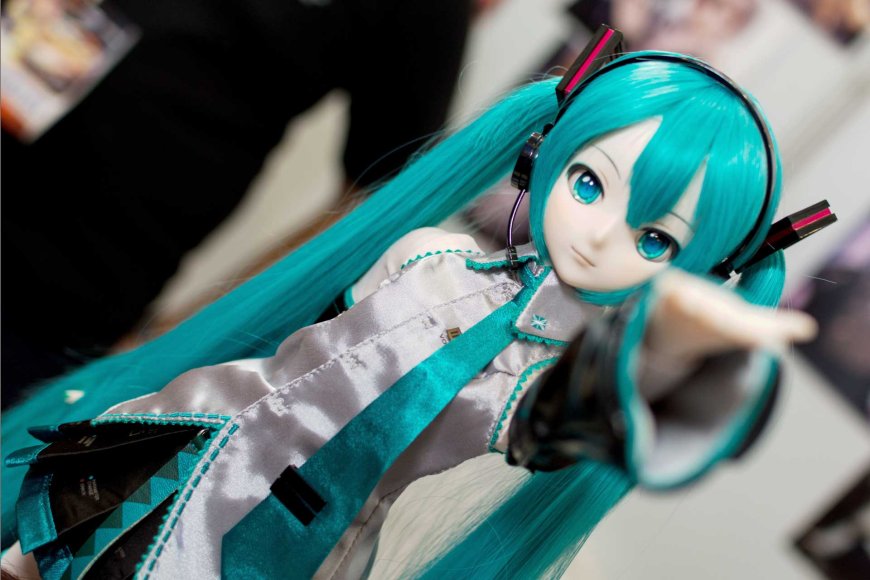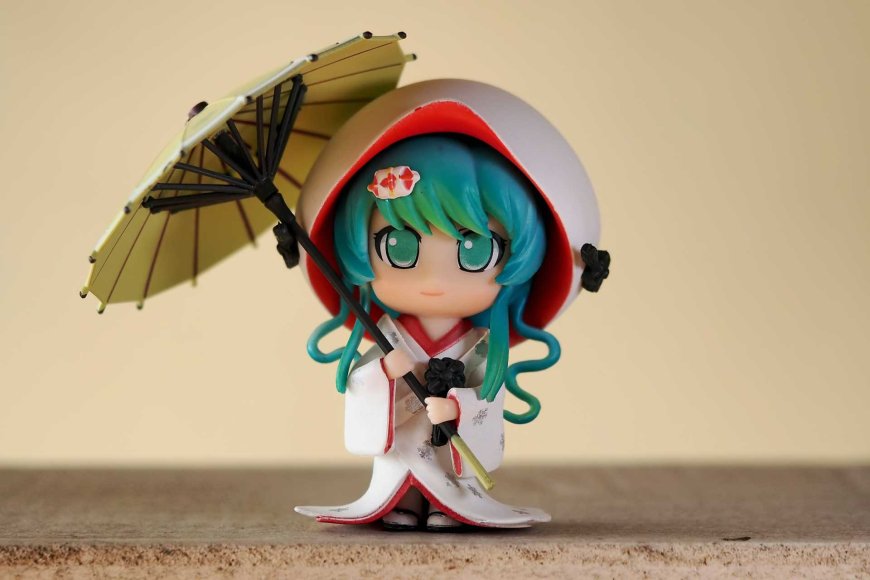The Rise of Virtual Idols: How Digital Performers are Changing Entertainment
Virtual idols like Hatsune Miku are revolutionizing the entertainment industry, blending cutting-edge technology with creative fandom.

Music and Media Through Virtual Stars
In the ever-evolving landscape of entertainment, one of the most fascinating phenomena of recent years is the rise of virtual idols. At the forefront of this digital revolution stands Hatsune Miku, a virtual singer who has captured the hearts of millions worldwide.

The Birth of Hatsune Miku: A Technological Marvel
Hatsune Miku, whose name translates to "the first sound of the future," is a product of Vocaloid software developed by Yamaha Corporation. Released in 2007 by Crypton Future Media, Hatsune Miku is a singing synthesizer application featuring a voicebank sampled from Japanese voice actress Saki Fujita. The software allows users to create songs by inputting melodies and lyrics, which Miku then sings with her distinct, high-pitched voice.
What sets Hatsune Miku apart from previous musical software is her anthropomorphized persona. Depicted as a 16-year-old girl with long turquoise twin-tails, Miku's character design, created by artist KEI, has become iconic. This combination of advanced technology and appealing character design has contributed to her immense popularity, making her not just a tool for music production but a beloved virtual idol.

The Global Impact of Virtual Idols
Hatsune Miku's influence extends far beyond her home country of Japan. Her virtual concerts, featuring holographic projections and synchronized live performances by musicians, have been held worldwide. These concerts provide an immersive experience that blurs the line between the real and the virtual, attracting fans of all ages and backgrounds.
One of the key factors in Miku's global appeal is her open-source nature. Crypton Future Media has encouraged a collaborative relationship with fans, allowing them to create and share their own songs, artworks, and even animations featuring Hatsune Miku. This has led to a vast and ever-growing library of fan-generated content, fostering a vibrant and creative community. The result is a cultural phenomenon where the fans play an integral role in shaping the idol's identity and legacy.

Digital Performers Beyond Hatsune Miku
While Hatsune Miku is perhaps the most famous virtual idol, she is far from the only one. The success of Vocaloid technology has paved the way for other digital performers, each with their unique characteristics and fan bases. Kagamine Rin and Len, Megurine Luka, and Kaito are among the many Vocaloid characters who have achieved significant popularity.
Beyond Vocaloids, there are other forms of virtual performers. Kizuna AI, for example, is a virtual YouTuber (or VTuber) who interacts with fans through video content and live streams. Using advanced motion capture technology, Kizuna AI and other VTubers create a dynamic and engaging presence that feels remarkably real. This new form of digital performance has garnered millions of subscribers on platforms like YouTube and Twitch, showcasing the versatility and widespread appeal of virtual idols.

The Future of Virtual Entertainment
The success of virtual idols like Hatsune Miku and the growing popularity of VTubers indicate a significant shift in the entertainment industry. As technology continues to advance, we can expect virtual performers to become even more sophisticated and lifelike. Innovations in artificial intelligence, holography, and virtual reality are likely to enhance the capabilities of digital idols, making their performances more immersive and interactive.
Furthermore, the concept of virtual idols is not limited to music and video content. They are starting to make their mark in other areas such as fashion, gaming, and advertising. Hatsune Miku, for example, has appeared in commercials, collaborated with fashion brands, and even had a guest appearance on The Late Show with David Letterman. As these digital entities become more integrated into mainstream culture, they will continue to influence and shape various aspects of entertainment and media.

Challenges and Ethical Considerations
Despite their many advantages, virtual idols also present several challenges and ethical considerations. Issues of intellectual property and ownership can become complex, especially when fan-generated content is involved. Additionally, the rise of digital performers raises questions about the future of human artists and the potential for job displacement in the creative industries.
There are also concerns about the authenticity and emotional connection that virtual idols can provide. While many fans appreciate the creativity and innovation behind these digital performers, others argue that they lack the genuine human touch that traditional artists bring. Balancing technological advancement with preserving the authenticity of artistic expression will be crucial as the phenomenon of virtual idols continues to evolve.

The Future of Entertainment
Hatsune Miku and other digital performers represent a fascinating intersection of technology, creativity, and fandom. Their rise to prominence reflects broader trends in digital entertainment and the increasing role of virtual experiences in our lives. As we look to the future, it is clear that virtual idols will continue to push the boundaries of what is possible in the world of music and beyond, offering new and exciting possibilities for artists and audiences alike.
Find Cheap Flight Tickets to any Destinations in Japan and the Philippines
Nipino.com is committed to providing you with accurate and genuine content. Let us know your opinion by clicking HERE.































































